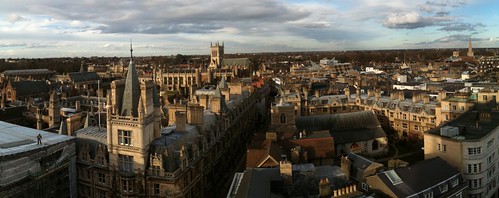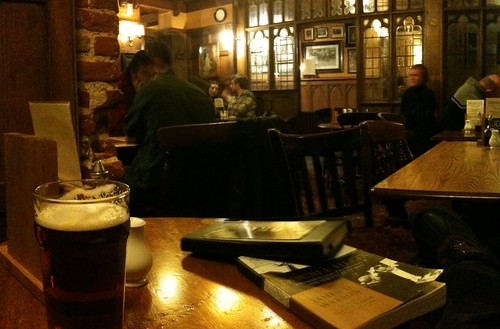Bowdoin professor Kristen Ghodsee writes in the Chronicle Vitae about her experience on sabbatical in Europe, and how that life compares to American academic culture:
I still worked full time, writing three books and giving 19 lectures in 13 countries. I also had obligations to the research institutes where I worked, as well as responsibilities to professional associations back home. And yet I somehow created a saner balance between work and family than I’d ever managed on my home campus.
In the German and Finnish universities she visited, people leave at sane hours, they don’t check their email on weekends, and they don’t spend all day Saturday and half of Sunday reviewing articles or stuffing yet more footnotes into their manuscripts (always a favorite rainy-day activity of mine when I was writing for academic audiences).
Compare this to her life back home (at the kind of institution you would have imagined offers significant quality of life benefits, being in what a Bay Area native like me would regard as the back of beyond):
back on campus in the United States… my colleagues thought nothing of scheduling two four-hour meetings in the evening, or of proposing a half-day meeting on a national holiday…. At all hours of the night, I receive emails from administrators, students, and colleagues who expect immediate replies. I feel tethered to my iPhone here….
Weekends are meaningless. The workload of full-time teaching, administration, and an active research career spills over to fill every available crevice of time.
What makes this piece– and the perspective that a good sabbatical can offer– is that it’s a window into another, and I would argue superior and more appealing, way of working.
Non-academics may think of sabbaticals as a time when scholars are relaxed and the pressure is off, but that’s not quite true: a sabbatical, especially if it’s underwritten by a prestigious fellowship or at a cool place, creates both an opportunity and an obligation to be super-productive, to finish up those projects you started on campus but couldn’t complete during the regular academic year, or to explore a new direction in your scholarship.
And you can take advantage of it. During my sabbatical in Cambridge (which was more than five years ago, incredibly), I did enough work to establish a strong foundation for my second book, The Distraction Addiction, and started thinking about the issues that I discuss in my third book REST (coming out in less than a month!).
Yet my experience in Cambridge was a lot like Ghodsee’s in Europe. As I write in REST:
My wife and I both worked hard and got a lot done during our sabbatical, but we also found time for evenings in the pub, Sunday walks to the Orchard, quick trips to London, and weekends in Edinburgh and Bath and Oxford. It was an intense and productive time, yet also oddly unhurried. As ardent Anglophiles, we found being in Cambridge intellectually energizing. But I began to wonder if our productivity had as much to do with pace of our lives as the place we lived. I started to think that maybe our familiar ways of working and living and our unquestioned assumptions about the need to stay always connected, to keep one eye on the inbox at the playground or the dinner table, to treat weekends as a time to catch up on work, and to hold vacations in contempt, actually don’t work as well as we think.
As Ghodsee’s and my experience illustrates, a well-spent sabbatical illustrates the essential difference between leisure and idleness. From the outside they look similar, but idleness doesn’t offer the opportunity for unforced work and creativity. As John Lubbock put it in a famous essay,
Rest is not idleness, and to lie sometimes on the grass under the trees on a summers day, listening to the murmur of water, or watching the clouds float across the blue sky, is by no means a waste of time….
Hours of leisure should not be hours of idleness; leisure is one of the grandest blessings, idleness one of the greatest curses– one is the source of happiness, the other of misery.
Because they can let you be very productive, sabbaticals challenge us to think about how regular academic (and working) life could be less of a whirlwind, and more focused on only those parts of academic work that really matter. And, more generally, to think about how we can benefit from putting more rest into our lives.

